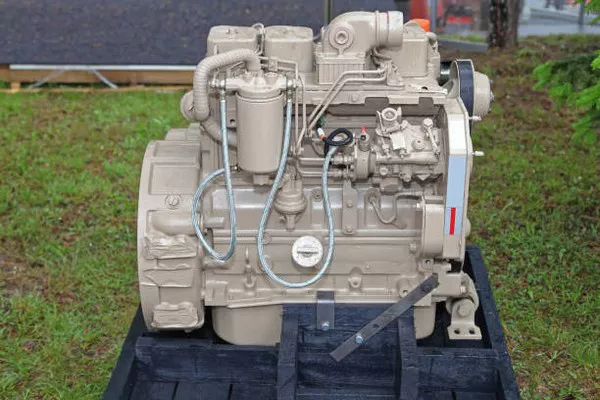Generators are invaluable tools during power outages, outdoor events, and remote job sites. However, operating a generator in adverse weather conditions, particularly in the rain, raises significant safety and operational concerns. This article will delve into the implications of using a generator in the rain, the risks involved, and the precautions necessary to ensure safe operation.
Understanding Generator Operation and Risks
Basic Generator Mechanics
Generators convert mechanical energy into electrical energy through a process that involves an internal combustion engine and an alternator. Most portable generators are powered by gasoline, diesel, or propane and are equipped with outlets for connecting various electrical devices.
The Danger of Moisture
Generators are designed for outdoor use, but their electrical components are highly susceptible to moisture. When a generator gets wet, several risks emerge:
Electrocution: Water is a conductor of electricity. If water penetrates the generator’s outlets or wiring, it can create a path for electricity to escape, posing a serious electrocution hazard to anyone near the generator.
Short Circuits: Moisture can cause short circuits in the generator’s electrical system, leading to malfunction or damage. Short circuits can also result in fire hazards.
Engine Damage: Ingress of water into the engine can damage internal components, leading to costly repairs or rendering the generator inoperable.
Manufacturer Guidelines and Safety Standards
Manufacturer Recommendations
Most generator manufacturers explicitly advise against operating generators in wet conditions. This caution is typically highlighted in the user manuals and safety labels. Ignoring these recommendations not only puts users at risk but may also void warranties and product guarantees.
OSHA and Electrical Safety
The Occupational Safety and Health Administration (OSHA) and the National Fire Protection Association (NFPA) have stringent guidelines for the safe operation of portable generators. According to OSHA, portable generators should be kept dry and should not be used in rainy conditions without proper protection. The NFPA’s National Electrical Code (NEC) also provides detailed safety practices for using electrical equipment in damp or wet locations.
Best Practices for Using Generators in the Rain
Sheltering the Generator
To safely operate a generator in the rain, it must be adequately sheltered. Here are several methods to protect a generator from moisture:
Generator Tents and Canopies: Specialized generator tents and canopies are available that provide sufficient ventilation while keeping rain out. These shelters are designed to withstand harsh weather conditions and are a worthwhile investment for those who frequently use generators outdoors.
DIY Shelters: A well-constructed DIY shelter can also serve the purpose. It should be made of non-conductive materials and provide ample ventilation to prevent carbon monoxide buildup. The shelter must be sturdy enough to withstand wind and prevent water from pooling and leaking.
Permanent Enclosures: For generators that are permanently installed, such as standby home generators, a professionally designed enclosure that meets local building codes and manufacturer specifications is essential. These enclosures often include soundproofing and weatherproofing features.
Proper Grounding
Grounding a generator is crucial, especially when operating in wet conditions. Proper grounding helps prevent electrical shock by providing a safe path for stray electrical currents. Follow these steps for grounding:
Consult the Manual: Always refer to the generator’s manual for specific grounding instructions.
Use a Grounding Rod: Drive a copper rod into the ground and connect it to the generator using a heavy-duty grounding wire.
Check Local Codes: Ensure compliance with local electrical codes and regulations regarding grounding practices.
Extension Cords and Electrical Connections
Using the right extension cords and electrical connections is vital for safety:
Weatherproof Cords: Use heavy-duty, weatherproof extension cords rated for outdoor use. These cords are designed to resist moisture and withstand rough conditions.
Avoid Overloading: Do not overload the generator or the extension cords. Overloading can lead to overheating and potential fires.
Keep Connections Dry: Elevate connections to keep them off the ground and away from puddles. Use waterproof covers or connectors to protect electrical connections from moisture.
Carbon Monoxide Safety
Ventilation
Even when sheltered, a generator must have adequate ventilation to disperse exhaust fumes. Carbon monoxide (CO) is a deadly, colorless, and odorless gas produced by the engine. To prevent CO poisoning:
Keep Generators Outdoors: Never run a generator indoors or in enclosed spaces such as garages, basements, or sheds.
Maintain Distance:
Position the generator at least 20 feet away from windows, doors, and vents to prevent exhaust from entering living spaces.
Use CO Detectors: Install battery-operated carbon monoxide detectors in your home, especially near sleeping areas, to alert you to dangerous CO levels.
Emergency Preparedness
Regular Maintenance
Regular maintenance ensures your generator operates safely and efficiently. Maintenance tasks include checking oil levels, inspecting fuel lines, and replacing filters. Keep a maintenance log and follow the manufacturer’s recommended schedule.
Training and Familiarity
Ensure all potential users are familiar with the generator’s operation, including starting, stopping, and emergency procedures. Conduct regular drills to ensure readiness in case of an emergency.
Weather Monitoring
Stay informed about weather conditions. Use weather apps or local news to monitor rain forecasts and prepare accordingly. If severe weather is expected, plan to secure and protect your generator well in advance.
See Also How to Properly Hook Up a Generator: A Comprehensive Guide
Conclusion
Operating a generator in the rain poses significant risks, primarily due to the potential for moisture to cause electrocution, short circuits, and engine damage. Following manufacturer guidelines, adhering to safety standards, and implementing best practices can mitigate these risks. Proper sheltering, grounding, and the use of weatherproof equipment are essential for safe operation. Additionally, maintaining proper ventilation to prevent carbon monoxide poisoning is critical. By taking these precautions, you can safely use your generator in adverse weather conditions, ensuring continuous power supply while protecting yourself and others from potential hazards.
Ultimately, while it is technically possible to run a generator in the rain with appropriate precautions, the best approach is always to prioritize safety and prevent moisture exposure whenever possible.

